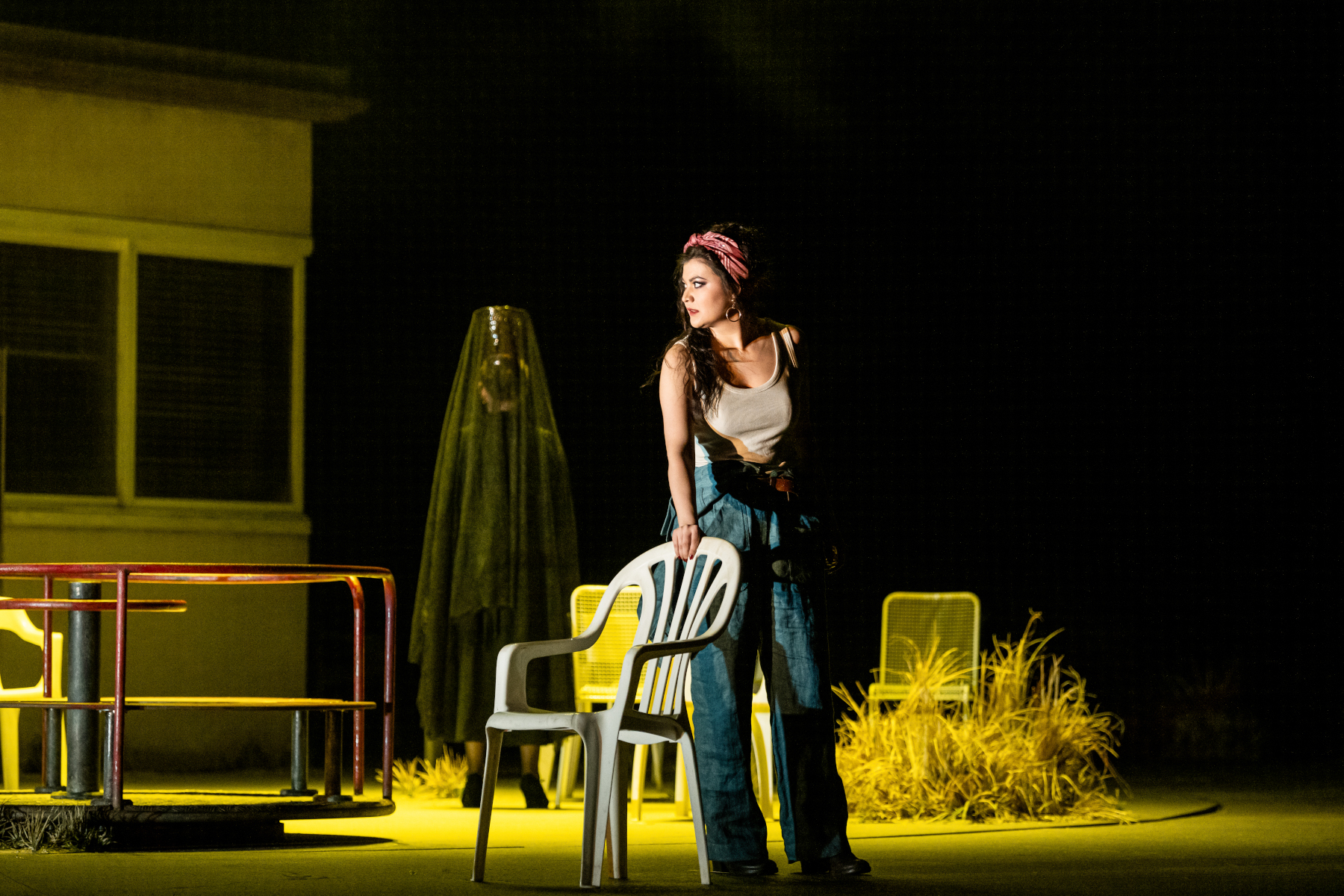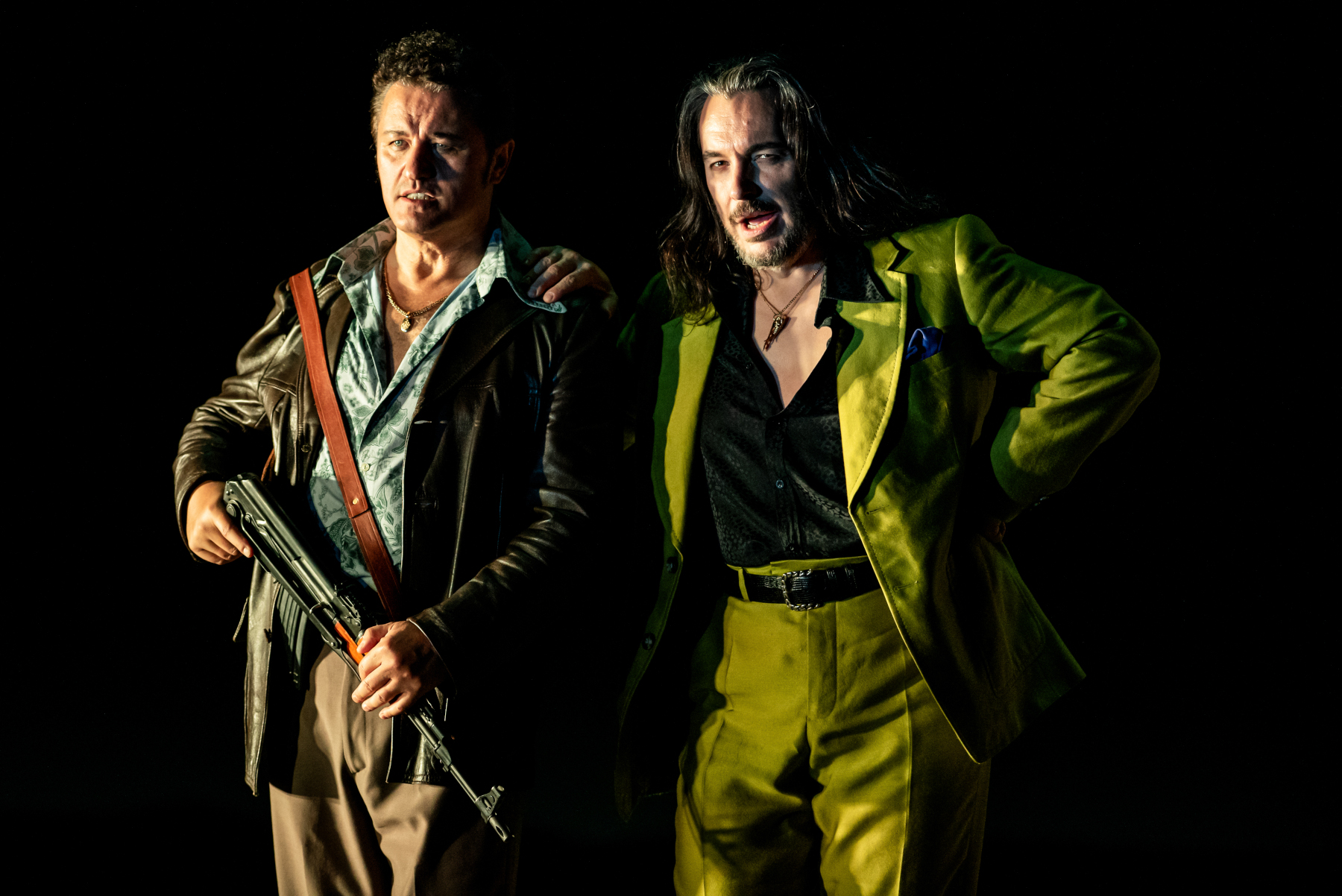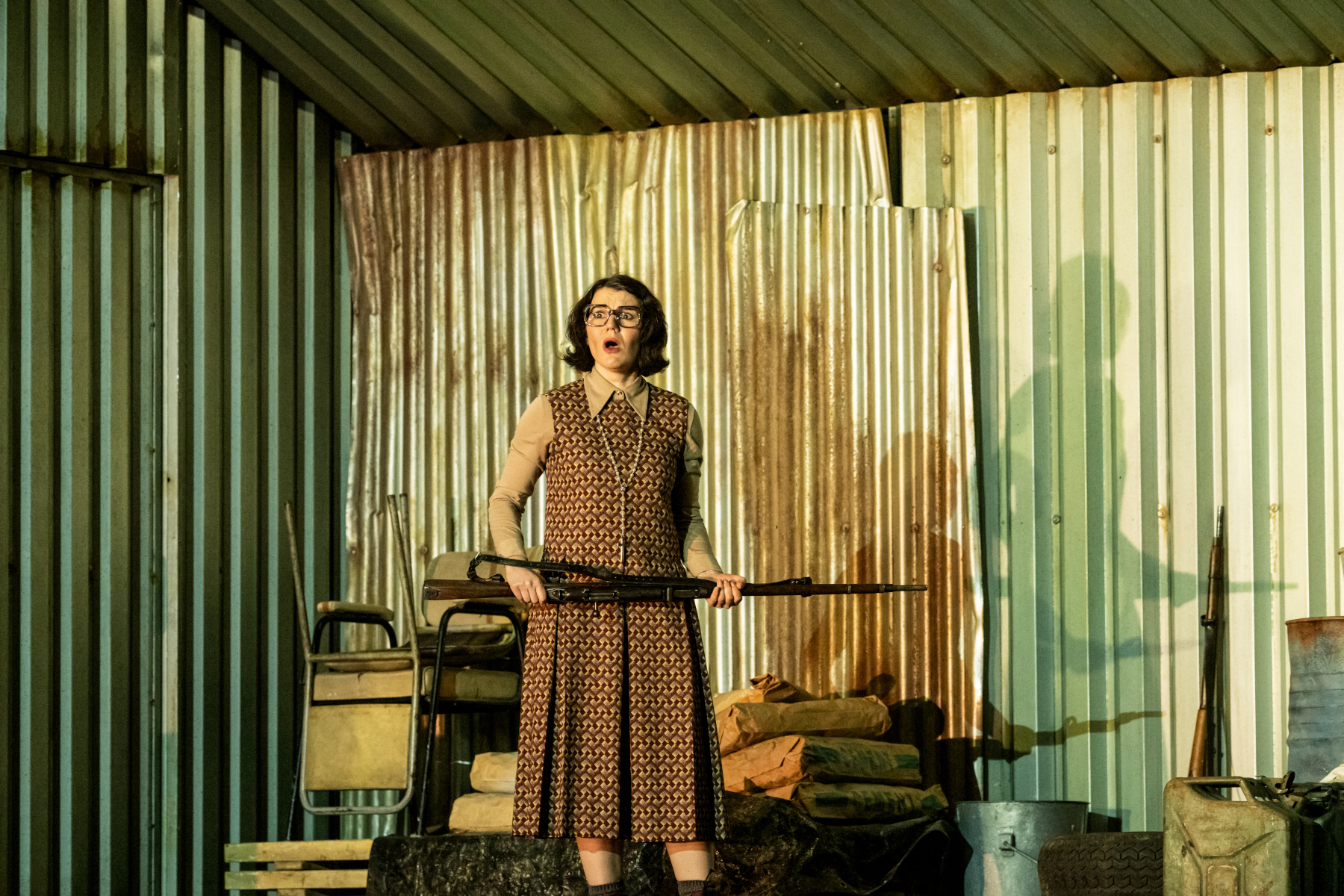For any new staging of a work as familiar as Carmen there is an imperative to root out fresh perspectives, to pursue a previously unexplored angle; effectively to reinvent the wheel with some winning novelty. This new production from Italian director Damiano Michieletto, renowned for his award-winning Cavalleria rusticana and Pagliacci , makes several attempts to transform Bizet’s masterpiece which has been performed at Covent Garden nearly six hundred times, and is the second most performed opera in the company’s repertory. Fortunately, this brightly lit score and the strength of its text means it can survive even the most bizarre transpositions.

In this co-production with Teatro Real, Madrid and La Scala, Milan, Michieletto abandons any conventional picture postcard images of Seville or overcooked clichés involving banana republics and bullrings. Instead, he opts (according to Jessica Duchen’s programme essay) for “a rural and remote Spain, all wide horizons, heat, dust and inescapable sunlight”. Nothing especially new there and nowhere near as radical as Barry Kosky’s stage-filling staircase that dominated his 2018 production. But there is a surprise in the presence of a black-clad figure periodically stalking the stage. This is Don José’s mother (talked about but usually never seen) whose funereal garb is intended to foreshadow death – an indicator for those who are unfamiliar with the opera or cannot infer a tragic outcome from the music’s recurring fate motif. Presumably also, Michieletto asks us to consider traditional family values that Don José rejects. It’s a side issue of this thought-provoking staging, but one not without interest.
Paolo Fantin’s drab sets situate several single-storey buildings – police station, neon-lit bar, smuggler’s hut and toreador’s dressing room – beside wide-open spaces, while Alessandro Carletti’s harsh lighting underlines the scorching temperature and the torpor of a community envisaged as “sweaty, dirty and wild”. Tufts of grass and a lone telegraph pole suggest barren vistas of the wild west, an imaginary landscape that could be Andalucia or Arizona. Onto these mostly bare spaces children play cowboys and Indians and the men roam around listlessly in the heat. But too often Michieletto doesn’t know what to do with the chorus; the men are either nearly hidden from view or frantically waving their arms as if cheering at a football match. And the children are required to display signs in front of the drop curtain to signal each act – a charming notion and all very well if this was a comedy, but here all rather twee. That said, the singing from adults and children is uniformly excellent. But it is the singing from the principals that lifts the promise of this “searing new production” onto a significant level.

Leading the international cast is the charismatic Russian mezzo Aigul Akhmetshina who delivers a completely believable Carmen – vulnerable and volatile – gloriously rich toned throughout her range and especially impressive at the bottom. Her opening Habanera hadn’t quite settled, but by the time she reached her Seguidilla, voice and demeanour were the real business. [We can look forward to her at Glyndebourne this summer when she assumes the title role in another new production.] Her Don José is the Polish tenor Piotr Beczala, initially stiff and with pinched high notes, but coming into his own for a stylishly phrased ‘Flower Song’, exquisitely poised in the closing bars and sung with musical involvement if not personally directed at the woman with whom he is supposed to be infatuated. It’s not exactly a traversal of boyish adoration to murderous psychopath, but his portrayal may develop in time. Far more compelling and convincingly characterised is Olga Kulchynska’s dowdy Micaëla who steals our hearts with her fidgety hands and nervous adjusting of her glasses. Her singing is a delight, with gauche innocence cast aside in her poignant aria bringing news of José’s dying mother. Without doubt, it’s the evening’s emotional high-water mark.

Elsewhere, Kostas Smoriginas grows in stature as a sharp-suited Escamillo, initially unremarkable but bringing greater rewards during his fight with Don José. Prominent among the remaining cast are the bright, complementary voices of Sarah Dufresne and Gabrielė Kupšytė as Frasquita and Mercédès, faring well in the fortune-telling sequence, while Blaise Malaba and Grisha Martirosyan make their mark early on as Zuniga and Moralès. Below stage on opening night, Antonello Manacorda’s musical direction was uneven, but one could enjoy some zesty playing and a mellifluous prelude to Act 3. In summary, this production offers a fresh directorial approach with some outstanding singing.
David Truslove
Carmen
Music: Georges Bizet
Libretto: Henri Meilhac and Ludovic Halévy
Carmen – Aigul Akhmetshina, Don José – Piotr Beczala, Micaëla – Olga Kulchynska, Escamillo – Kostas Smoriginas, Zuniga – Blaise Malaba, Frasquita – Sarah Dufresne, Mercédès – Gabrielė Kupšytė, Dancaïro – Pierre Doyen, Remendado – Vincent Ordonneau, Moralès – Grisha Martirosyan, Mother of Don José – Caroline Lena Olsson, Director – Damiano Michieletto, Set Designer – Paolo Fantin, Costume Designer – Carla Teti, Lighting Designer – Alessandro Carletti, Dramaturg – Elisa Zaninotto, Conductor – Antonello Manacorda, Royal Opera Chorus, Children’s chorus from Youth Opera Company, Orchestra of Royal Opera House.
The Royal Opera House, Covent Garden, London; Friday 5 April 2024.
Top Image: Aigul Akhmetshina as Carmen.
All photos by Camilla Greenwell courtesy of Royal Opera House.